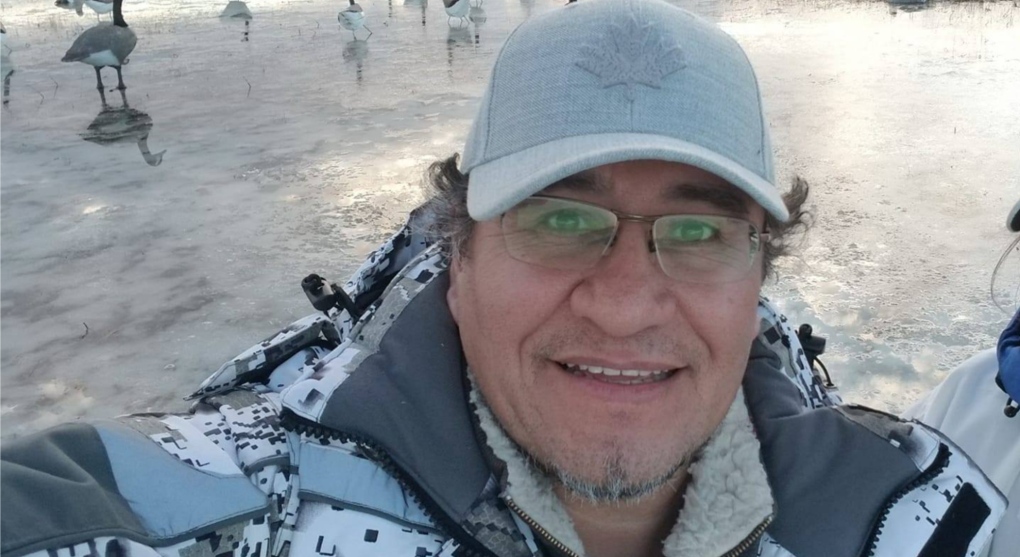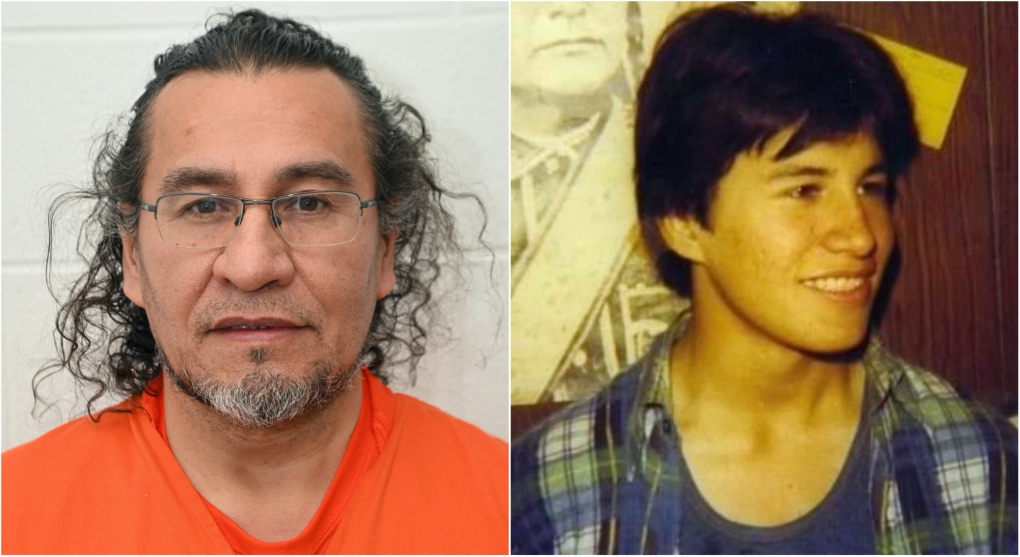Forensic company who helped police crack Gilmour, Tice cases reveals how they did it
The company that helped the Toronto police crack a decades-old cold case is revealing more details about how they identified a suspect in the grisly murders of two Toronto women in 1983.
Othram Inc., a Texas-based lab that leverages forensic genealogy to solve cold cases, was a crucial piece in helping investigators identify Joseph George Sutherland.
On Monday, Toronto police announced that they had arrested the 61-year-old in connection with the murders of two Toronto women in 1983, Erin Gilmour and Susan Tice.
Othram’s Chief Development Officer, Kristen Mittleman, told CTV News Toronto that Toronto police handed their team a piece of evidence after the force exhausted standard forensic testing and found no matches.
“Our DNA testing is something that no one else on earth can do right now the way that we do it here at Othram. We are the first lab that's purpose-built to take this type of evidence and use it for this really advanced forensic genome sequencing process,” Mittleman said.
It’s Othram’s job to then determine if the DNA picked up from the evidence is sufficient to sequence, she said.
“I believe that this [DNA sample] was a sperm fraction,” Mittleman said, noting that their team discovered a “mixture” of DNA samples from the “perpetrator and victim” in this particular cold case.
 An image of Joseph George Sutherland. (Facebook/Joseph G. Sutherland)In the “exact same manner” Mittleman said they worked with the Toronto police to uncover the man responsible for the murder of nine-year-old Christine Jessop who was sexually assaulted and killed more than 35 years ago.
An image of Joseph George Sutherland. (Facebook/Joseph G. Sutherland)In the “exact same manner” Mittleman said they worked with the Toronto police to uncover the man responsible for the murder of nine-year-old Christine Jessop who was sexually assaulted and killed more than 35 years ago.
Though Othram did not work on the infamous Golden State Killer case involving the former California police officer who raped and murdered dozens of victims in the 1970s and 80s, Mittleman said the same technology was used.
She said the key difference between the Sutherland and the Golden State Killer case was that the latter had “multiple victims and a ton of DNA,” whereas the Toronto cold case had a “very small” and “intractable” sample.
Once Othram processed the DNA, they gave it to a genealogist at the Toronto Police Service who uploaded it to a genealogical database to cross reference with genetic information of the suspect’s relatives and eventually zero in on Sutherland.
“They were able to take all those matches and work back through the genealogical tree until they came to the identity of the perpetrator,” Mittleman said.
 Joseph George Sutherland, 61, of Moosonee, was arrested on Thursday. (Supplied)“They use our result as an investigative lead to go investigate the case, figure out if that person was someone that could have been in the area at the time, fit the description of what happened, and then they do standard forensic testing again, to confirm the result.”
Joseph George Sutherland, 61, of Moosonee, was arrested on Thursday. (Supplied)“They use our result as an investigative lead to go investigate the case, figure out if that person was someone that could have been in the area at the time, fit the description of what happened, and then they do standard forensic testing again, to confirm the result.”
When Othram launched, Mittleman said they were solving multiple cold cases over the course of a year. But now, she said they are working on multiple cases a week with the hope of that eventually surging to multiple cases an hour.
“I think that cold cases will be extinct within the next decade,” she said.
“People won't have to wait decades to find out what happened to their loved one. I really do believe that perpetrators are going to start getting caught the first time they commit a crime, rather than having to wait till the second, third, fourth, or whenever they get caught. I also believe that that's going to start becoming a deterrent for crime.”
CTVNews.ca Top Stories

4th Indian national arrested, charged with murder of Hardeep Singh Nijjar
Homicide investigators in B.C. say murder charges have been laid against a fourth Indian national in connection to the killing of Sikh activist Hardeep Singh Nijjar outside a Surrey gurdwara last year.
'I am angry': Alberta farmers will continue fight over world class motorsport resort
The rolling hills leading to the hamlet of Rosebud are dotted with sprawling farms and cattle pastures -- and a sign sporting a simple message: No Race Track.
Man ticketed after allegedly trespassing again at Drake's Bridle Path mansion to get his bike
A man who tried to access Drake’s Bridle Path mansion earlier this week returned to the property Saturday and was apprehended again for allegedly trespassing, Toronto police say.
Couple randomly attacked, 1 stabbed, by group of teens in Toronto, police say
A man has been transported to hospital after police say he was stabbed in a random attack carried out by a group of teens in Toronto on Friday night.
Millions of Canadians have been exposed to potentially toxic chemicals, and they're not going anywhere
For decades, North Bay, Ontario's water supply has harboured chemicals associated with liver and developmental issues, cancer and complications with pregnancy. It's far from the only city with that problem.
Biden calls Trump 'unhinged,' says 'something snapped' in former president after he lost 2020 U.S. election
U.S. President Joe Biden on Saturday called Donald Trump “clearly unhinged” and claimed that “something snapped” in the former president after he lost the 2020 election.
Wildfire that forced evacuation of Fort Nelson, B.C., caused by tree falling on wires, mayor says
The wildfire that prompted the evacuation of more than 3,000 people near Fort Nelson, B.C., was caused by a tree falling on wires, according to the municipality's mayor.
Switzerland's Nemo wins 68th Eurovision Song Contest
Swiss singer Nemo won the 68th Eurovision Song Contest on Saturday night with 'The Code,' an operatic ode to the singer’s journey toward embracing their nongender identity.
IN PICTURES Northern lights dance across the night sky in southern Ont.
From London, to Grand Bend, Collingwood and Guelph, here are some highlights of Friday night and Saturday morning's northern lights display.































